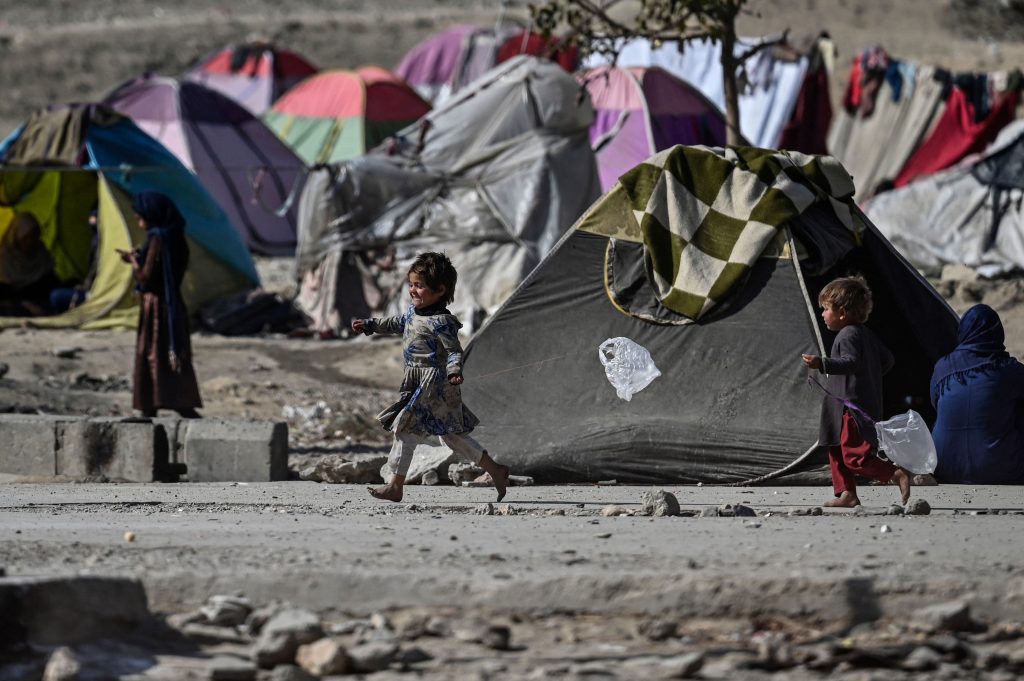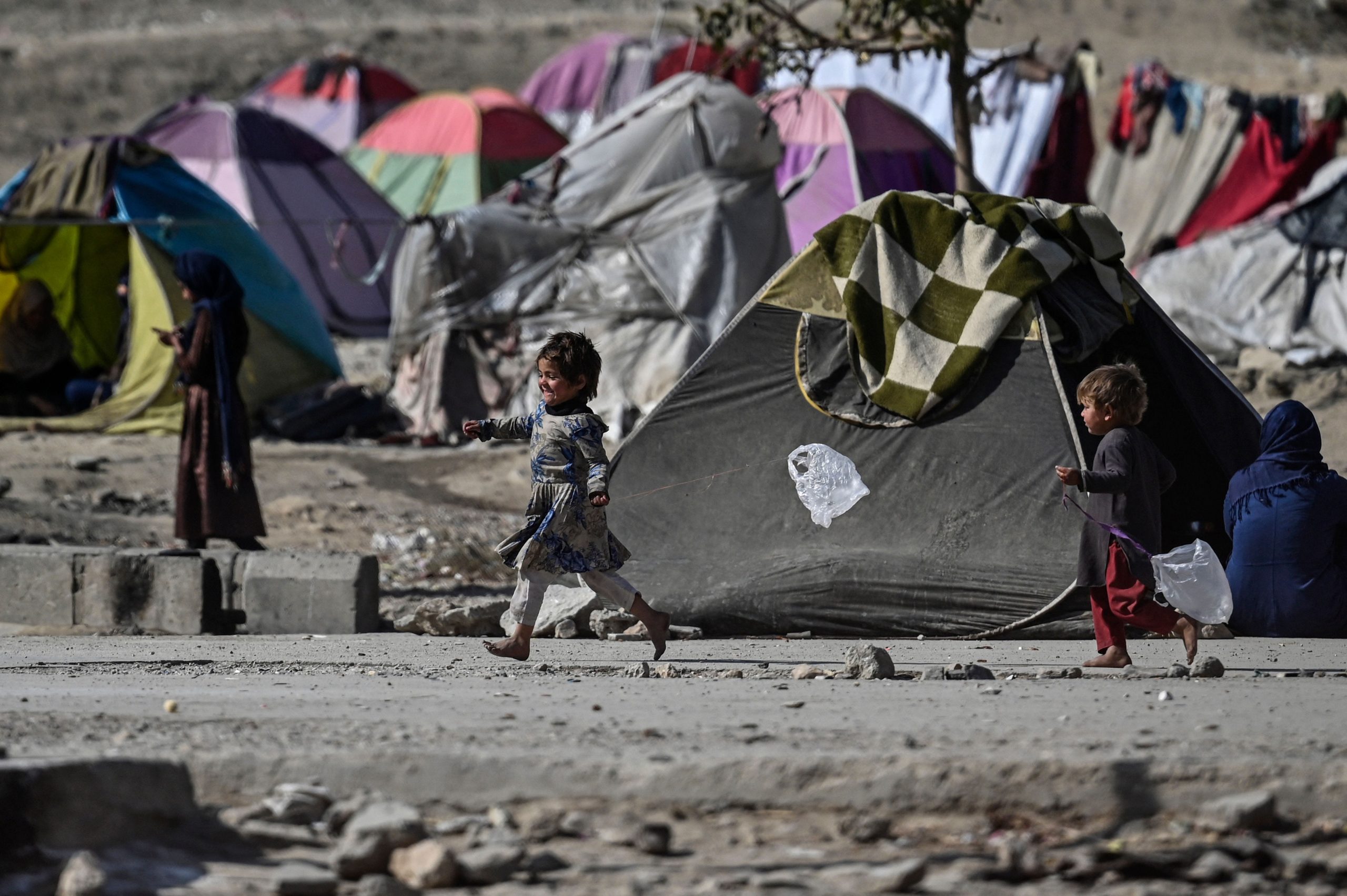
- Three months into Taliban rule, 22.8 million Afghans could face acute hunger this winter, the UN says.
- The Taliban has been cut off from $9.5 billion in assets and loans. Unemployment is widespread.
- The Taliban "obsesses" over women's daily activities while failing to manage basic needs, Afghan women said in a recent viral video.
Last month, Zahra Mohammadi, a doctor in Kabul, called on a small cadre of fellow professional women to gather up their spare coats and winter clothes.
They commissioned a minibus, and the plan was to deliver the items to a makeshift encampment of displaced Afghans on the northern edge of the Afghanistan's capital city. The head of each family could come and collect what they needed.
"We knew we didn't have much ourselves, but we had to do something," Mohammadi said from her busy clinic. (The Taliban has forced some women to abandon their jobs, but female doctors have continue to work.) "Some people felt bad giving clothes they had worn once or twice, but we told them, 'It's okay, these people have nothing.'"
But when they arrived at the park, it quickly became obvious that they had miscalculated not only the scale of need, but also how complex it would be to distribute the warm clothes.
"Some families did have tents, but so many others had gathered whatever fabric they could find to hang over their heads as shelter," Mohammadi said.
Crowds of people started rushing towards their minibus. Mohammadi and the others tried to maintain calm as they handed things out, but people were running towards the car as fast as they could, reaching for anything within their grasp and begging for help.
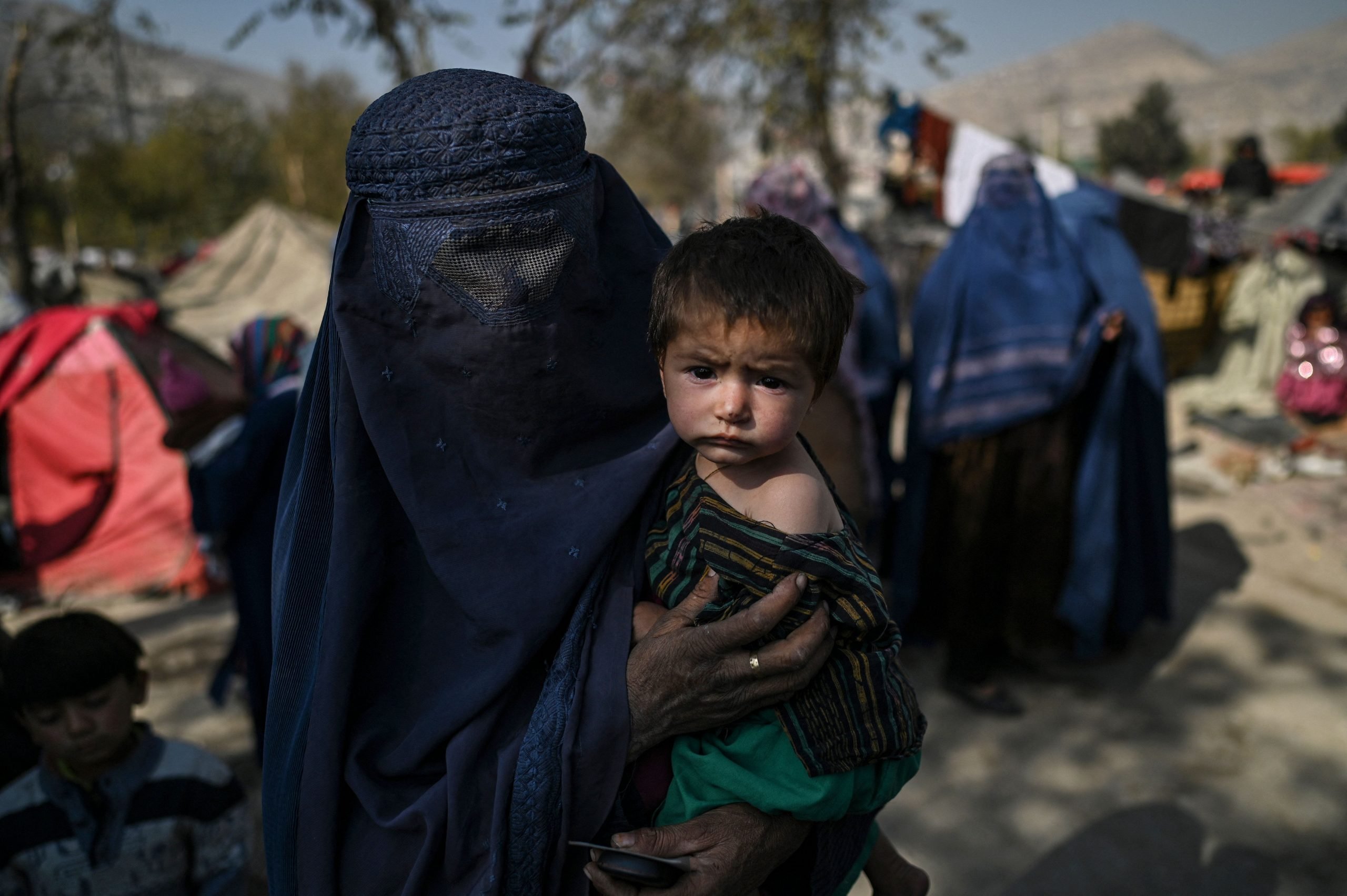
Sensing that the situation was getting out of hand, Mohammadi told the driver to go, "Even then, we just saw these boys and men chasing after our car, some were hanging onto the sides, I don't know what they were hoping to achieve," she said.
Mohammadi and her colleagues shot a video accusing the Taliban of being too "obsessed" with criminalizing women's daily activities to manage the basic needs of the country. The video soon circulated widely among Afghans.
"They've made it their mission to go after women. We're all they talk about. Our clothes, our shoes, our scent, our work, our school, they spend so much time dictating our lives," Mohammadi said during a phone interview the next day. "They spend so much of their time worrying about us women when they could be helping the millions in need."
She had to pause the interview a few times, as she juggled her formal and informal roles. One minute, she was asking a nurse about a patient's discharge papers. The next, she could be heard greeting female visitors who had come to talk about another plan to assist Afghans in need.
In the three months since the Taliban took control of Afghanistan, the economy has been crippled.
Scores of people lost their jobs overnight and even more haven't been receiving a paycheck. To prevent a run on banks, financial institutions have limited withdrawals to $400, and on most days lines are hundreds of people deep. The United Nations warns that 22.8 million Afghans – over half of the population – face acute hunger between now and March.
"A humanitarian catastrophe looms"
Before the Taliban took Kabul on Aug. 15, completing its sweep of the country as US troops prepared to end their 20-year war, Afghanistan's Western-backed governments were buoyed by two decades of foreign aid.
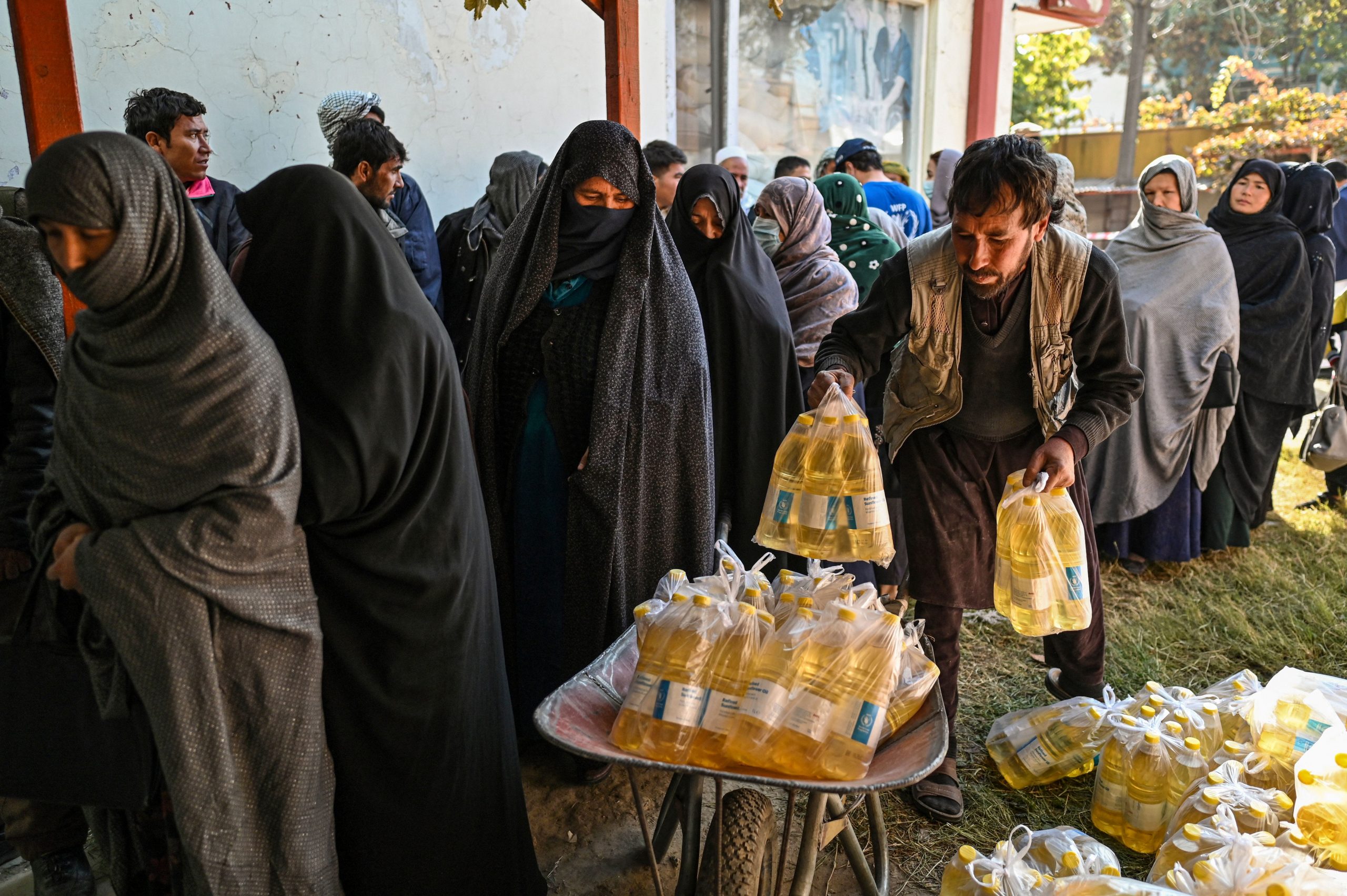
Just two weeks after the Taliban takeover, United Nations Secretary-General António Guterres said "a humanitarian catastrophe looms" in the country.
Since then, those warnings have only grown more dire. The World Food Programme says that Afghanistan is becoming the world's largest humanitarian crisis, with 8.7 million people facing emergency levels of hunger this winter. The World Health Organization said 3.2 million children are expected to suffer from acute malnutrition in Afghanistan by the end of this year.
In the three months since President Ashraf Ghani fled the country and the Taliban's all-male administration took over, the US and international organizations have cut off Afghanistan's access to $9.5 billion in assets and loans.
Even Afghans with means are facing pressure, as regulations on banking withdrawals and the falling value of the Afghani, Afghanistan's currency, has led to a severe cash crunch across the country.
Taliban spokesman Suhail Shaheen has said Western countries should make good on their promised aid immediately.
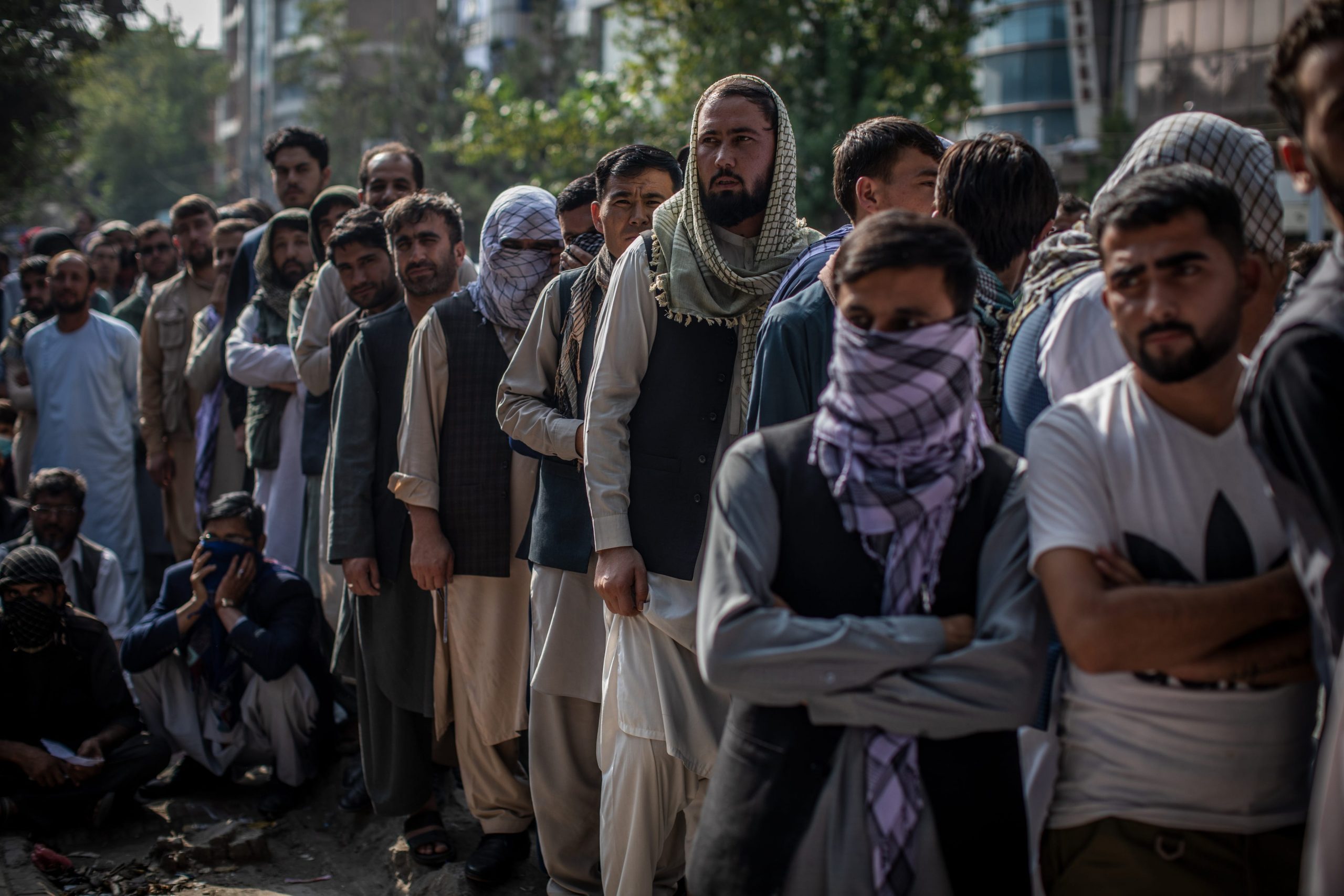
"The winter is around the corner, so there is an immediate need for the international community to urgently disburse the recently announced nearly one-billion-euro aid package pledged … to all poor, vulnerable and displaced people," Shaheen told the media last month.
Meanwhile, the Taliban launched a work-for-wheat scheme, but then grim jokes began to spread on social media and messaging apps saying that "wheat" has replaced the Afghani as Afghanistan's natural currency.
'I don't know how much longer I can keep things going'
The crisis stretches well beyond the capital.
Near the Tajik-Afghan border in Badakhshan province, one of Afghanistan's coldest areas, people are struggling to buy wood and coal to heat their homes. Prices for these things traditionally go up every year as the temperature drops, which people manage by taking out loans. But this year, they, like millions of other Afghans, are left to wonder how they will make due during the cold months.
Farhan Hotak, a vlogger was recently traveled to the area, said Badakshis in the border regions are now "living off limited resources." In the past, people were able to secure loans from relatives and neighbors to survive, but Hotak said that has largely come to an end as people are struggling to provide for their own families.
"No one can afford to lend money anymore," Hotak said from Tajikistan.
The region is heavily reliant on crossborder trade, which has been disrupted by a diplomatic spat since Tajikistan has refuses to acknowledge the Islamic Emirate as Afghanistan's legitimate government and the Taliban accuse Tajikistan of harboring resistance forces in the Northern province of Panjshir.
"People used to trade buy and sell among each other, but that came to an end after the Taliban takeover," Hotak said.
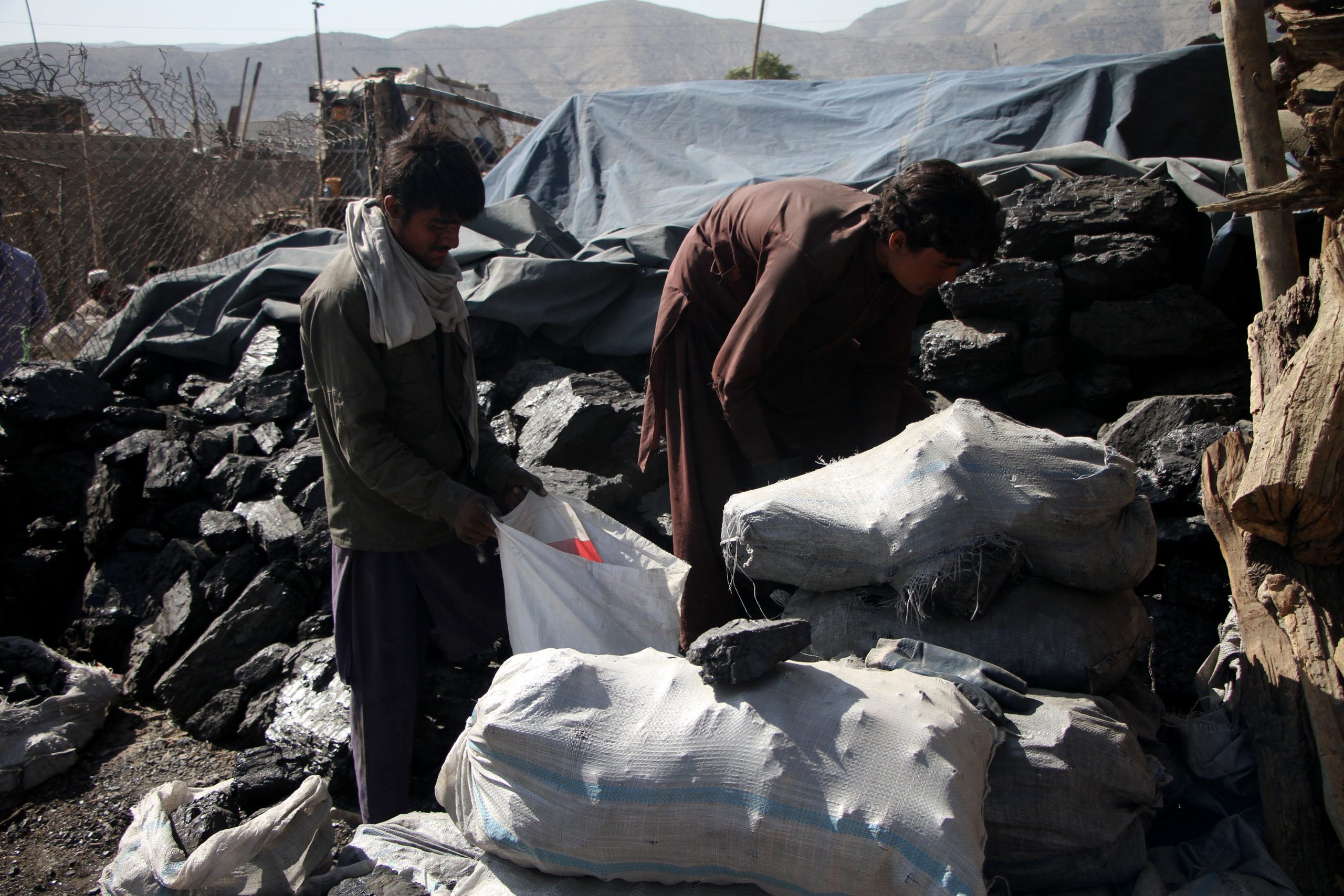
Hotak says that businessmen in the provincial capital, Faizabad, are also struggling. He said he met dozens of entrepreneurs who had left the city and were heading to Tajikistan in hopes of making some money.
In Kabul, hundreds of offices and businesses have shuttered.
Nawab Niazi, the owner of a textile factory, says that in years past he employed 70 to 80 people, but now he can only afford to pay 10 or 12 people, and at reduced wages.
"I don't know how much longer I can keep things going. When we run out of cash, we'll have no choice but to shut," he said in an interview. Niazi is wont to have his staff join the list of his family and friends who have spent the last three months in unemployment. He estimates that 90 to 95 percent of the people he knows in the capital are now jobless.
Niazi says Afghan business owners are facing enormous pressure to stay open, but without easy access to their bank accounts cannot pay their workers or their suppliers.
"We're burning through our reserves. once that's gone, I won't be able to pay anyone at all," Niazi said.
In years past, the public sector has been one of the biggest employers. But salaries depended on foreign aid, and now many government workers have not been paid in months.
The Security Forces and several ministries are operating at a minimum capacity, if at all. Hundreds of people who worked as bodyguards, drivers and cleaners to the former government are now unemployed as well.
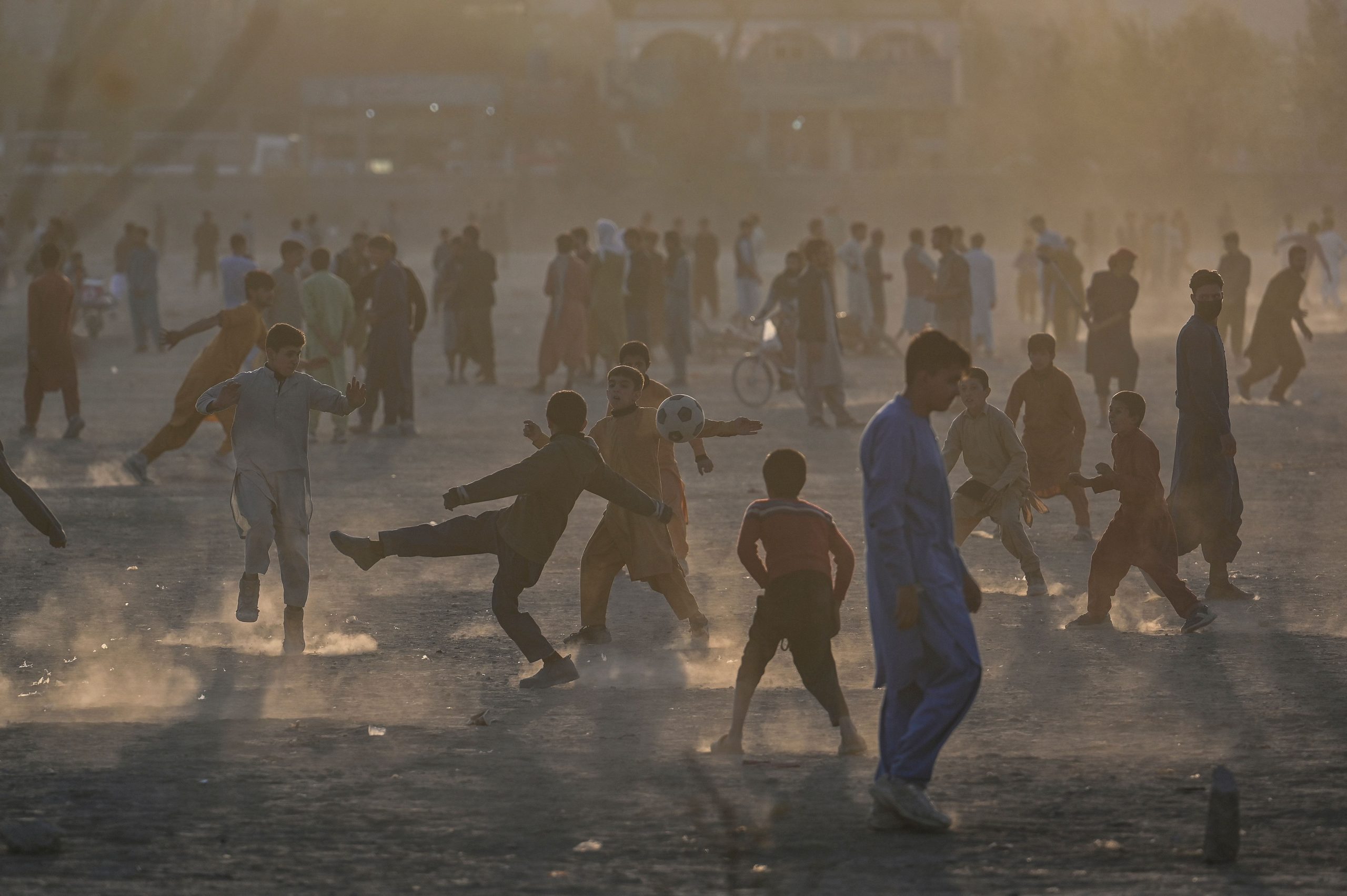
While unemployment is a problem across Afghanistan, it used to be that women could work and contribute to the family income. This, Mohammadi says, has only exacerbated the nation's financial woes.
One of the Taliban's first acts was to convert the Ministry of Women's Affairs back into the Ministry for the Propagation of Virtue and Prevention of Vice, which watchdog groups like Human Rights Watch had once denounced as "a notorious symbol of arbitrary abuses, particularly against women and girls."
But another casualty of the shift was that the old ministry had employed hundreds of women, many of whom were the sole breadwinners of their families. Similarly, female judges, teachers, journalists and office workers found themselves unemployed overnight.
"Those women are now at home wondering how to feed their families," Mohammadi said.
